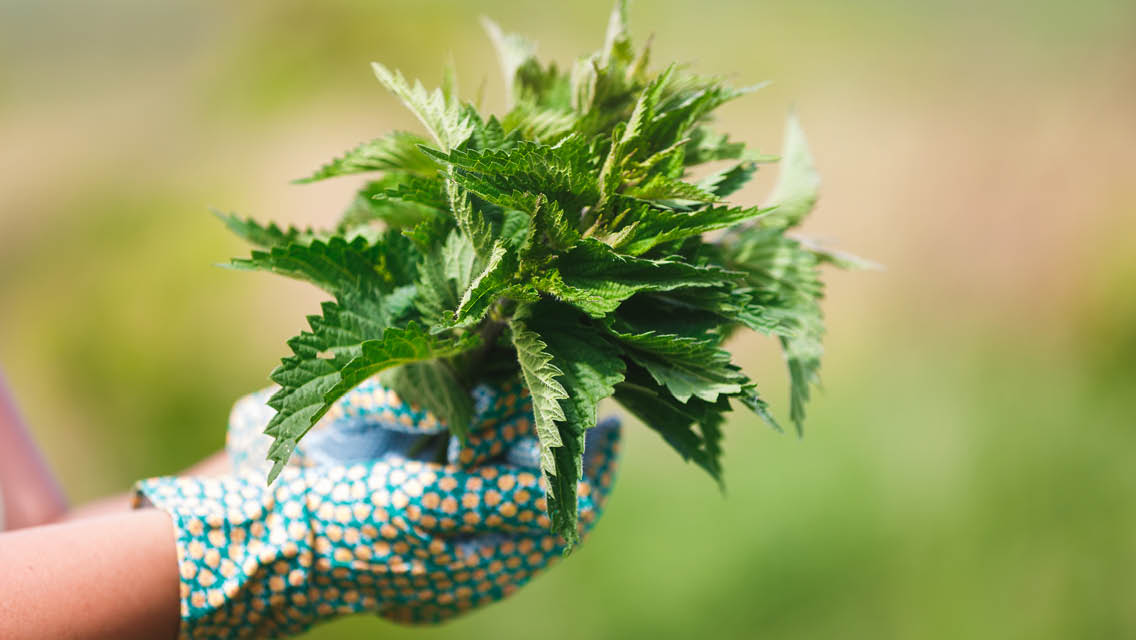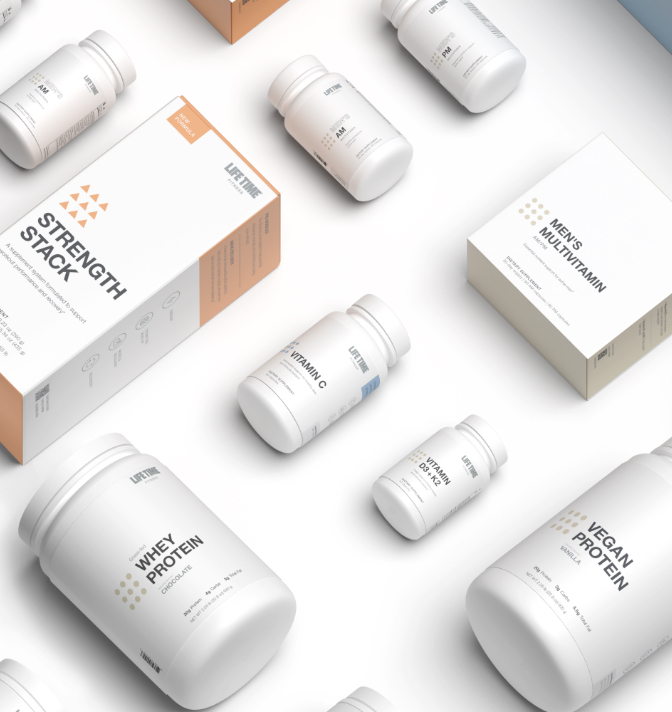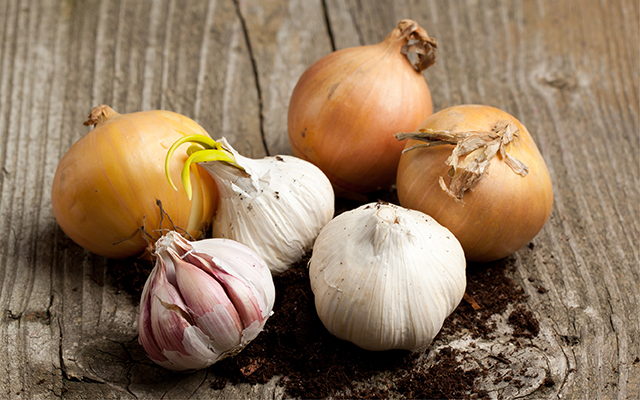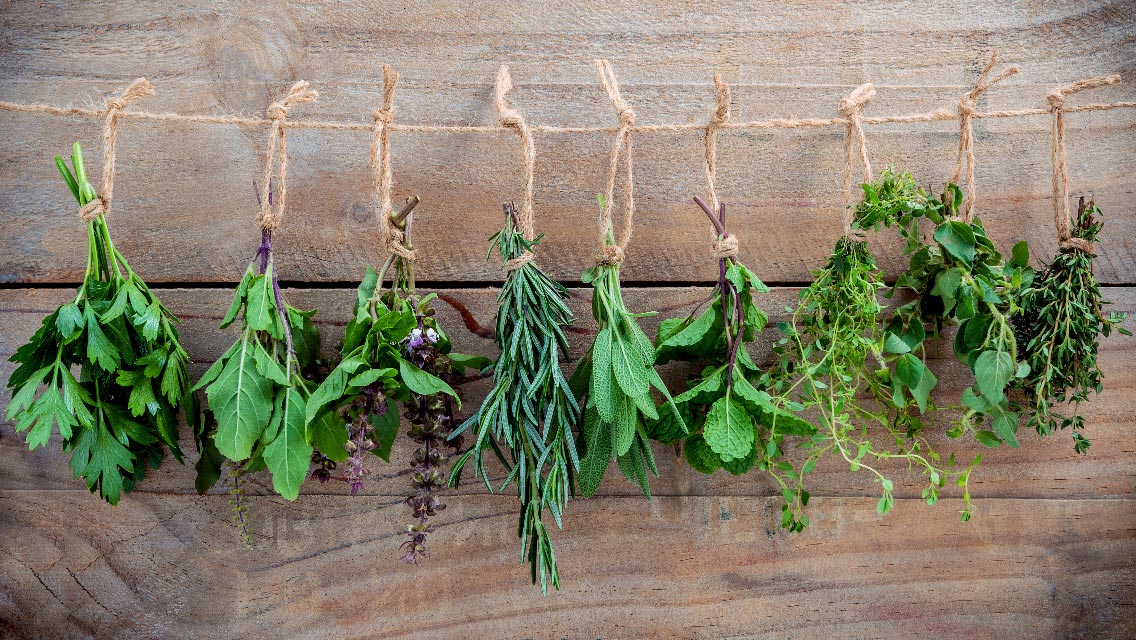To address allergies, “one of the most powerful leverage points we have is diet,” says Kara Fitzgerald, ND, IFMCP, who recommends a whole-foods diet with plenty of colorful vegetables and fruits, herbs and spices, nuts and seeds, and fish rich in omega-3 fatty acids. She also suggests avoiding inflammatory foods that can drive allergy symptoms, including sugars, refined grains, vegetable oils, trans fats, and processed foods.
Several botanicals may support you during allergy season. “They usually take a little longer to act than medications, and you must be consistent about taking them before and during allergy seasons, but they are much safer for long-term use,” she says.
Consider adding these to your antiallergy arsenal.
1) Vitamin C
With its antioxidant and anti-inflammatory properties, vitamin C supports immune function and has also been shown to reduce the amount of histamine your body produces in response to allergen exposure. “Since allergies are an immune-system response, it makes sense that adequate vitamin C is important,” says Life Time master trainer and dietitian Samantha McKinney, RDN, LD. “Most studies are done on intravenous vitamin C, but taking it orally can still help boost your vitamin C status.”
Best Food Sources:
Humans don’t make or store vitamin C, so eat plenty of your favorite citrus fruits, peppers, green leafy vegetables, and berries.
How to Supplement:
For extra support during allergy season, Cindi Lockhart, RDN, LD, IFNCP, recommends a liposomal form of vitamin C for optimal absorption. Try 500 mg twice a day “up to bowel tolerance,” she says. If you’re still having allergy symptoms and your stools are fine, increase gradually to as much as 2,000 mg a day.
(See “What You Need to Know About Vitamin C” for more on this essential nutrient that supports nearly every aspect of health.)
2) Stinging Nettle
A long-revered herbal remedy, stinging nettle contains quercetin and other flavonoids as well as a host of vitamins, including vitamin C. Research is limited, but studies suggest it may reduce seasonal-allergy symptoms by acting as an anti-inflammatory and antihistamine. More long-term human studies are needed to confirm efficacy and safety.
Best Food Sources:
You can find stinging-nettle tinctures and capsules at most natural grocery stores and pharmacies. Some people make a tea or tincture from dried leaves or flowers, or add roots to soups. “I would not recommend making a tincture on your own unless you’re an experienced herbalist or professional,” cautions McKinney.
How to Supplement:
“The most common dose for allergies is 300 mg twice daily for a total of 600 mg of a supplement from the stinging-nettle leaf, not the root,” says McKinney.
3) Bromelain
This enzyme mixture is known for its support of digestion as well as its inflammation-fighting properties. Research suggests bromelain may shorten the duration of acute-sinusitis symptoms, improve breathing, and reduce nasal inflammation. It’s also used with supplemental quercetin to increase absorption.
Best Food Sources:
Bromelain is found in fresh pineapple, but not in therapeutic doses. Still, the fruit is rich in antioxidants and immune-boosting nutrients, including vitamin C, which support allergy-symptom relief.
How to Supplement:
“Bromelain is typically taken as a capsule or tablet, but it’s also available as a powder,” says McKinney. She notes that it can cross-react with certain medications, so check with your physician if you’re taking prescriptions, especially antibiotics, blood thinners, sleep aids, or antidepressants.
4) Probiotics and 5) Prebiotics
With 70 to 80 percent of our immune cells living in the gut — and an increasing understanding of how the gut microbiome affects systemic immunity — it makes sense to feed and repopulate our microbiota to reduce allergic reactivity. Several studies have shown that probiotic support can improve symptoms of allergic rhinitis.
Best Food Sources:
“Food is how you really shift things in the microbiome,” says Lockhart, noting that “a supplement is more like a placeholder.” Probiotic foods that populate your gut with healthy bacteria are fermented fare, such as natural sauerkraut, kimchi, yogurt, miso, and kombucha. Prebiotic foods — which feed the bacteria in your gut — include asparagus, cabbage, garlic, Jerusalem artichokes, and onions.
How to Supplement:
McKinney suggests that a broad-spectrum probiotic supplement may be helpful for allergies. “I typically recommend both food-based strategies and periodic probiotic supplementation. Look for options that have at least 30 billion CFU (colony-forming units) that include both Lactobacillus and Bifidobacterium species.”
(Learn more at “Everything You Need to Know About Probiotics” and “Why Prebiotics Are as Important as Probiotics.”)
6) Vitamin D
Researchers have long recognized vitamin D’s role in supporting immune health, and more recent studies suggest that people with low serum vitamin D levels may have an increased risk of allergic rhinitis.
A small 2015 placebo-controlled trial of vitamin D supplementation found that allergic-rhinitis patients who took vitamin D had significantly improved nasal symptoms after supplementation.
Best Food Sources:
Eggs and fatty fish, such as salmon, sardines, and mackerel (with bones for the most nutritional benefit), are excellent sources of vitamin D.
Still, “the average person is not going to see a big bump in their vitamin D levels from food alone, especially if they’re deficient,” says McKinney, who recommends some common-sense exposure to the sun, as well as supplementation.
How to Supplement:
Look for vitamin D3, which is more bioavailable than D2. Taking vitamin K2 with your D3 provides synergistic benefits.
(Find out more about vitamin D supplementation at “Vitamin D: What You Need to Know“.)
7) Black Cumin Seed
Nigella sativa (N. sativa), also known as black cumin seed, has a long history as a traditional food and folk medicine. Limited but promising research suggests the seed’s antihistamine, anti-inflammatory, and immune-boosting properties may reduce respiratory allergy symptoms.
Best Food Sources:
Black cumin seeds are commonly used throughout the Middle East, North Africa, and South Asia. They’re often added to bread, yogurt, pickles, sauces, and salads.
How to Supplement:
Many studies used 500 mg of black-cumin-seed oil taken three times daily. Fitzgerald recommends looking for formulations with 0.7 percent or greater thymoquinone (TQ) content.
This was excerpted from “Can Quercetin Relieve Your Season Allergies?” which was published in Experience Life magazine.






This Post Has 0 Comments